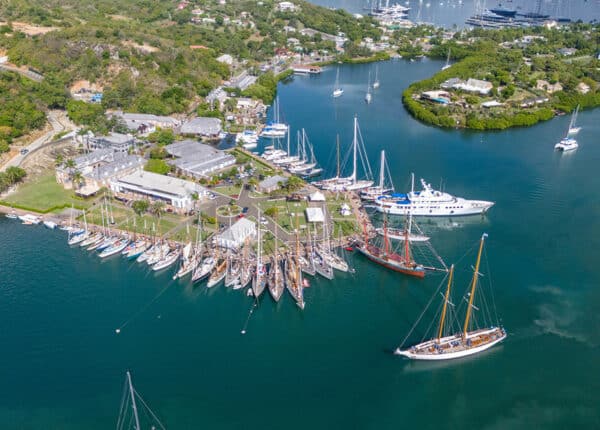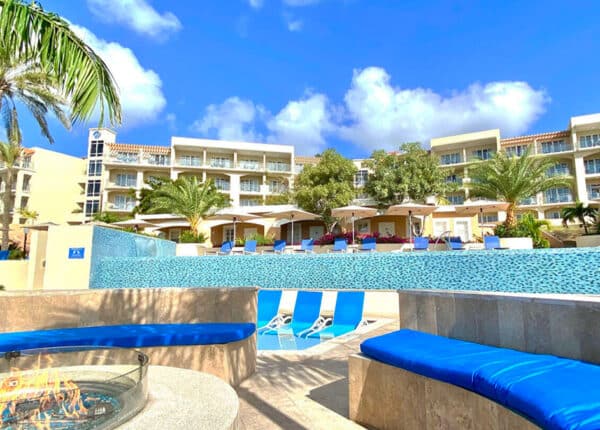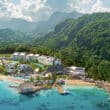By Ryan Peterson
Op-Ed Contributor
IT IS a truism that tourism is experiencing a tectonic transformation.
In recent times, the global tourism and travel industry, and in particular, Small-Island Tourism-Economies (SITES) in the Caribbean have had to contend with a series of unprecedented and disruptive social, technical, economic and ecological and challenges. In effect, SITES are coming full cycle, and are experiencing the pressures and prowess to re-experiment and re-invent tourism as they did almost five decades ago.
As SITES venture into the new reality of the 21st century, they face considerable uncertainty, volatility, and ambiguity, which will require nothing less than an equally tectonic shift in not only reforming sustainable tourism development, but more importantly, transforming sustainable tourism leadership.
The quest at hand is not the reform in balancing existing and future social, economic and ecological stakes, but in how SITES transcend these traditional transactions, in order to transform and lead sustainable tourism in a holistic fashion.
While political debates and economic discussions on sustainable tourism in the Caribbean have been bent and bandied for several decades now, what is less scrutinized is the need and emergence of transformational leadership for sustainable tourism. Akin to installing solar panels on a house, without questioning the integral foundation and architecture of the house, SITES have been reforming tourism policies and developments, without re-thinking and re-designing the leadership foundations, subsequently inducing unsustainable sustainable tourism.
To understand this emerging shift towards leading sustainable tourism in the Caribbean, it essential that we place this within the historical and contemporary political-economic context of Caribbean SITES. As relatively experienced tourism-intense island economies, SITES are facing the trials and tribulations of a mature tourism-economy in a hyper-competitive environment, in which the confluence of several disruptive innovations are pressuring the traditional ‘product and policy’ paradigm of tourism and its sustainable development.
Generally speaking, SITES define themselves by a complex adaptive web of dynamic interdependencies between intrinsically unpredictable complex systems, involving economic, social, ecological, and institutional (f)actors.
As SITES mature in a dynamic environment, they evolve through different spheres, and increasingly operate on the ‘edge-of-chaos’, in which SITES exist in a fuzzy state of dynamic flux, oftentimes experienced as temporal states of crisis by policy-makers, executives, and island communities.
In effect, SITES increasingly experience strategic discontinuities and multiple dynamic equilibria in their development.
This is in stark contrast, however, with the traditional principles and policies of sustainable tourism.
The concept of sustainability, although polymorphous, refers primarily to an ability to maintain a system in a steady continuous state, and is based on principles of equity, equilibrium, durability, and continuity, in which stability is essential for maintaining, conserving, and preserving a -social, cultural, ecological or economic- system. Nevertheless, within the context of disruptive innovations, this perspective induces systemic entropy and stimulates inertia, due to its non-adaptive strategy and ‘atomistic’ approach.
In more unambiguous terms, while SITES have matured in managing the singular terms and transactions of economic, social and ecological dimensions in tourism development, the need for transcending and transforming these ‘atoms’ of sustainable tourism, presents a clear and present need for leadership and leading sustainable tourism in a holistic (non-atomistic) fashion.
In effect, the acclaimed ‘sustainability triangle’ of economic, social and ecological developments and impacts is pointless, if transformational leadership and the transcendence of atomistic transactions are not acknowledged and development. Transformational leadership is the new chariot of sustainability, and without shared values, due diligence, knowledge relationships and strategic governance, ‘sustainable tourism’ will remain flawed in conceptualization, futile in execution, and fleeting in sustainability.
The confluence of classical transactional policies and the emerging need for transformational leadership has created, paradoxically enough, a non-sustainable framework for addressing, let alone guiding, the sustainability of SITES. Lacking a comprehensive framework for understanding the clash of forces in today’s world, we are like a ship’s crew, trapped in a storm and trying to navigate without compass or chart. Or yes, installing state-of-the-art green energy technologies, without rethinking and redesigning the underlying green infrastructure and architecture.
In a culture of crusading disciplines and disciples, drowned in disjointed praxis, perspectives and paralysis, creative deconstruction and transformational leadership of sustainable tourism are not only necessary – they are strategic imperatives for the present and future of sustainable tourism in the Caribbean.
Ryan Peterson, PhD is Professor of Innovation Economics and Research Chair in Sustainable Islands at the University of Aruba. He can be reached at ryan.peterson@ua.aw.
Note: the opinions expressed in Caribbean Journal Op-Eds are those of the author and do not necessarily reflect the views of the Caribbean Journal.






